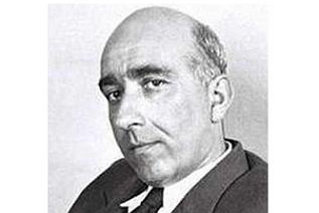 Haim Herman Cohn, ACRI's second president
Haim Herman Cohn, ACRI's second presidentThe Tel Aviv Municipality’s Names Committee recently approved 14 new names to be memorialized on the city’s streets, parks and school buildings. One of those honored was Haim H. Cohn (1911-2002), an Israeli jurist and the second president of the Association for Civil Rights in Israel (ACRI), who was described by former Supreme Court President Aharon Barak as “one of the founders of Israeli law.”
In 1981, after retiring from the Supreme Court, Cohn accepted the position of president of ACRI and served in this capacity until 1988. “Cohn served in the key positions of the Israeli legal establishment: Attorney General, State Attorney, Minister of Justice, and a Supreme Court Justice. What motivated him to head an institution whose sole purpose is to criticize the establishment, an institution that sometimes holds unpopular positions that deviate from the political consensus?,” wrote Prof. David Kretzmer, a founding member and former chairperson of ACRI. “The answer to this question was revealed to me through my conversations with Haim Cohn about ACRI-related issues […] at the basis of Haim Cohn’s perception of human rights there was a universal point of view, one that sees every human being as created in God’s image.”
We recently marked 30 years to ACRI’s annual Emil Grunzweig Human Rights Award and published a booklet on the stories behind the award. ACRI spokesperson Ronit Sela, who compiled materials for this booklet, discovered a lesser known side of Cohn, who was one of the members of the Grunzweig Award Committee throughout the 1980s and 1990s:
“Going over the piles of archived material documenting the nomination process for the Human Rights Award, I was moved time and again to come across Haim Cohn’s hand-written chronicles. He expressed his regards to those who received the award by personally compiling poetic and graceful illustrations, which were then presented on the official award certificates. In the archives I found more than a dozen such documents, elegantly handwritten in small and orderly Hebrew letters.
“I also discovered an exchange of letters between Cohn and Baruch Meiri, a journalist who received the award in 1985 for outstanding coverage of social issues. In January 1986, Meiri writes in a letter to Cohn: ‘ACRI’s decision to give me this year’s Emil Grunzweig Award is a great compliment, but it also carries with it a commitment: to continue to struggle, possibly even more so, for what I – and all of us – believe in: more justice for all human beings and the correction of wrongs.’
“To which Cohn replied, on 21 January 1986: ‘[…] When the award is granted to a journalist, it then carries with it an expectation and hope that its encouraging effect will be contagious, that is to say that it will encourage not only its recipient but also the recipient’s colleagues […] In this sense, the recipient of the award must not only be encouraged himself: he must take upon himself a kind of solidarity-responsibility to raise the level of the profession and to cultivate awareness regarding civil liberties and a humane society, both in his own newspaper and in all of the media. With all the best regards, Haim Cohn.’
After Cohn passed away in 2002, former Supreme Court President Aharon Barak said: “Haim Cohn the man is no longer, but the spirit of Haim Cohn is still with us, will always be with us, will always accompany us. A spirit of liberalism, a spirit of tolerance and understanding, a spirit of the love of man, of human rights, of the love of Israel and the State of Israel, a spirit of love for Hebrew law.” The Association for Civil Rights in Israel (ACRI) is proud to be a part of this distinguished legacy.







